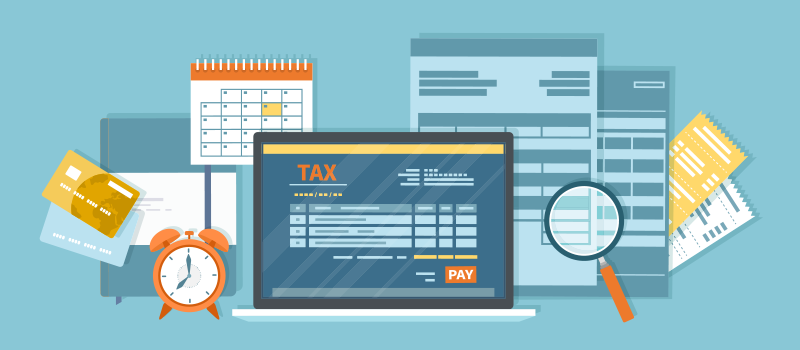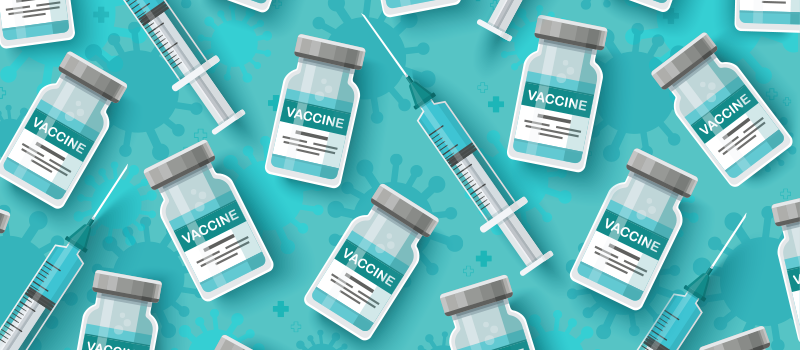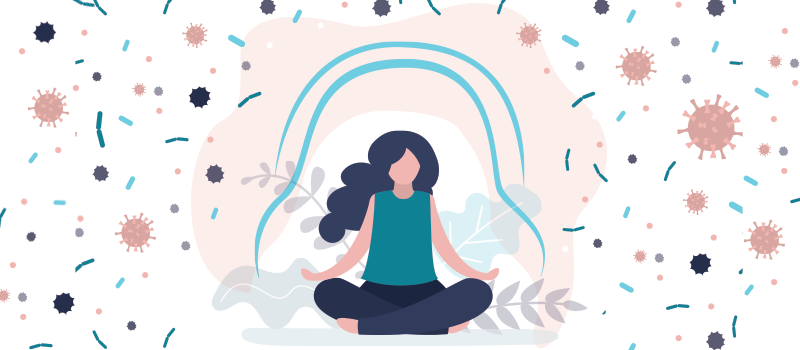What’s the Buzz
The Bee Healthy Blog
How Often Should I Get a COVID Booster?

In May 2023, the federal government marked the public health emergency related to COVID-19 as over. But this does not mean that the disease is no longer a threat. The virus that causes COVID-19 infection continues to evolve and spread. The Centers for Disease Control and Prevention (CDC) recommends that those at the highest risk of severe illness, such as older adults, people with underlying medical conditions, and those who are severely immunocompromised (weakened immune system), continue to take preventive measures, including getting fully vaccinated against COVID to prevent severe illness, hospitalization, and death. Regarding the general population, the CDC recommends that everyone should stay up-to-date on COVID-19 vaccination.
But do you need more doses of the COVID-19 vaccine? Here’s what you need to know about the updated COVID-19 vaccines, previously known as the “booster” dose of the COVID-19 vaccination.
Is the new COVID-19 vaccine coming out in Fall 2023 considered a booster dose?
On September 11, 2023, the U.S. Food and Drug Administration approved two formulas of the 2023-2024 COVID-19 vaccine series — Comirnaty by Pfizer and BioNTech and Spikevax by Moderna.
These two COVID-19 vaccines were initially referred to as boosters by the FDA. However, the agency made the shift from calling them the “updated vaccines” instead of the next “booster” doses.
The change in wording is meant to make the COVID-19 vaccine one of the annual vaccinations, just like the flu shot. In addition, saying you need a “booster” dose means that they provide a boost to the existing immunity from the previous COVID-19 vaccination, which is not accurate in these cases because the updated COVID-19 vaccines provide immunity against the current variants.
What is the difference between monovalent and bivalent vaccines?
A monovalent vaccine provides protection only against the original virus strain. The bivalent vaccine provides protection against both the original virus as well as the omicron variant of the virus. The monovalent vaccine was the very first COVID-19 vaccine that was available in December 2020, targeting the original strain of the virus. In the fall of 2022, the US Food and Drug Administration (FDA) authorized two bivalent vaccines - the Pfizer-BioNTech and Moderna COVID-19 bivalent booster shot providing immunity against the original strain and the omicron subvariants.
The current, updated COVID vaccine approved by the FDA in September 2023 is a monovalent vaccine. This will be the only COVID vaccine that is available this fall. So keep in mind, unlike the previous formulations, the updated COVID vaccine is a monovalent vaccine containing only one component, the XBB.1.5 variants currently causing the majority of COVID cases.
Why do you need a COVID booster shot?
Antibody levels and the protection offered by the original COVID-19 vaccine begin to wane over time. An updated COVID booster dose can help you maintain robust protection and prevent severe illness. However, this is not applicable to the current updated COVID vaccines.
As mentioned, the updated COVID vaccine is an updated formula that provides immunity against the current circulating variants. It is not boosting immunity against the previous virus strains that were circulating last year.
What are the CDC recommendations for the updated COVID vaccine?
Adults and children 5 years and older
If you have recently received a dose of the bivalent vaccine, you should wait at least two months before getting the updated COVID vaccine that is available in September 2023.
Children between 6 months and 4 years
-
Children who are not vaccinated should get two or three doses of the updated COVID-19 vaccine, depending on which vaccine they get.
-
Pfizer-BioNTech is a vaccine series in 3 doses
-
Moderna vaccine is a vaccine series in 2 doses
-
Children who previously received COVID-19 vaccine before September 12, 2023, should get one or two doses of the updated COVID-19 vaccine depending on which vaccine and the number of doses they’ve previously received.
-
Pfizer-BioNTech: children who previously received one vaccine dose before September 12, 2023, should receive two doses of the updated Pfizer-BioNTech COVID vaccine, and those who received two or more dose previously should receive one dose of the updated Pfizer-BioNTech COVID-19 vaccine
-
Moderna: it does not matter how many doses were previously administered. Children should only get one dose of the Moderna updated COVID-19 vaccine.
What are the recommendations for other COVID-19 vaccines?
Novavax COVID-19 Vaccine
For those who are 12 years or older and unable or choose not to get the updated Pfizer-BioNTech or Moderna COVID-19 vaccine, they can choose the Novavax series as an alternative.
The monovalent Novavax COVID-19 vaccine continues to be authorized as a two-dose primary series and a booster dose in certain situations. People (age group 12 years and older) who got 1-2 Novavax monovalent as a primary series should receive 1 bivalent mRNA vaccine booster dose (Pfizer Bio-NTech or Moderna).
However, keep in mind that if you want to get the Novavax booster, you have to meet the following eligibility requirements:
-
You are 18 years or older
-
You’ve completed a COVID-19 vaccine primary series at least 6 months ago
-
You have not gotten any other COVID-19 booster dose
-
Novavax is not authorized as a booster dose for those between 12 and 17 years of age.
Johnson and Johnson’s Janssen COVID-19 Vaccine
This vaccine is no longer available in the United States as of May 2023.
Are the bivalent vaccines still available?
As of September 11, 2023, the bivalent COVID-19 vaccines by Pfizer-BioNTech and Moderna are no longer available for use in the United States.
Also, as of April 18, 2023, the original COVID-19 vaccines are no longer available; the original vaccines were initially designed to protect against the original strain of the virus.
What if I recently had COVID-19?
If you recently had COVID-19, the CDC recommends waiting 3 months before getting the updated vaccine.
What are the recommendations for immunocompromised people and those with underlying health conditions?
The World Health Organization states that all countries should prioritize the COVID-19 vaccination for certain populations, including the most vulnerable people, to prevent severe illness, as they are at the highest risk for complications from severe disease, hospitalization, and death.
According to the World Health Organization, these high-risk groups include those over 60 years old, those with underlying medical conditions, and immunocompromised individuals.
According to the FDA, people with moderately to severely compromised immune systems may get additional protection from additional doses of the updated COVID-19 vaccines. Talk to your healthcare provider if you have a weakened immune system or underlying health conditions before receiving an additional dose of the vaccine.
The general recommendation for these high-risk groups is to get additional doses of the updated vaccines. However, the exact number of the updated COVID-19 vaccine for immunocompromised people and those with an underlying illness depends on the following factors:
-
The individual’s vaccination history
-
The vaccine manufacturers (Pfizer-BioNTech, Moderna, and Novavax)
What are the side effects when you get the updated COVID-19 vaccine?
The COVID-19 booster vaccination causes minor and temporary side effects similar to other vaccinations, such as flu shots. You may notice soreness and swelling at the injection site as well as fever, headache, body aches, and tiredness for 1-2 days, similar to a flu shot. Some people also develop chills and swollen lymph nodes. These symptoms are an indication that your immune system is building protection against the virus that causes COVID-19.
References:












SOCIAL